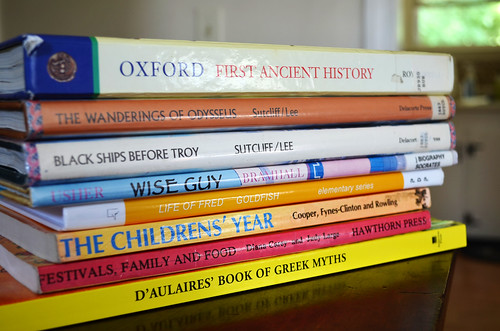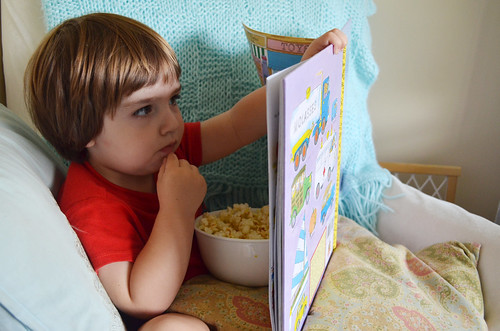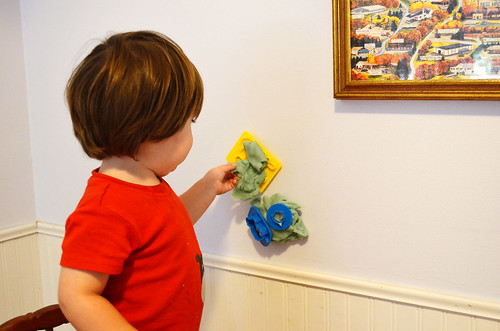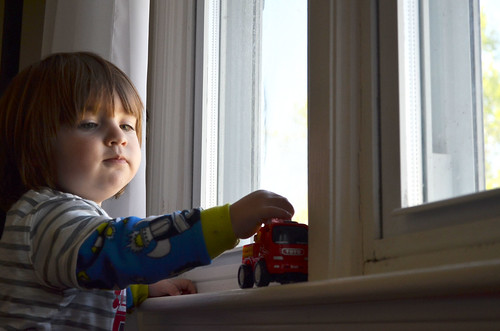Can you believe it’s already the beginning of another school year? The summer went by too fast. It always does.
Lillia’s Adventures
This week we picked up right where we left off last spring with the Ancient Greeks. We’re continuing in Roy Burrell’s Oxford First Ancient History with the Persian Wars. We learned about Darius I and his defeat at Marathon. Lillia felt quite sorry for Pheidippides for having to run so far and then to fight in a war directly afterwards! We also learned about the battles between Greece and the Persian Empire (at this time ruled by Darius’s son, Xerxes). We learned about how the Greeks suffered defeat at Thermophylae, but were able to outwit the Persians at Salamis by ensnaring them in a narrow passage of water between mainland Greece and the island of Salamis. The Greeks had an advantage in naval warfare as their ships were superior to those of the Persians. We are continuing to use the note-taking method that we developed at the end of last year using templates from Tanglewood Education in conjunction with images that I prepare and print out ahead of time (the templates are available as a download and cost on $2.50 — probably one of the best investments I’ve made since we started homeschooling). This method seems to work well for Lillia because I do the work of pulling out key pieces of information and she is still responsible for filling in the details.
We’re also reading Black Ships Before Troy, by Rosemary Sutcliff, an adaptation of The Iliad that is beautifully (I mean really beautifully) illustrated by Alan Lee. I’m a huge sucker for beautiful illustrations, which is what drew me to the book in the first place, but Sutcliff’s prose is equally amazing. I love that she was able to preserve the Homeric-style naturalistic analogies (the movements of soldiers are often compared to water, or birds, or other natural phenomena), while at the same time constructing a plot line that younger readers can follow and that doesn’t dwell so much on the gruesomeness of combat as the original. I highly, highly recommend this book, and you absolutely must get the illustrated hardcover or you’re missing half the beauty.
In math we are starting Life of Fred: Goldfish over again because we were only a few chapters in and I thought it would be good to refresh our memories. Additionally, this is the first book in the series that deals with multiplication and I want to make sure that we are thorough. Here she is diligently answering her “row of practice” problems.
One of my goals for this year was to help Lillia learn to write on command without freezing up. I thought that a good way to do this would be to use a writing journal with pre-made pages that had prompts on them — nothing too personal, just short little assignments. I found a really nice set of back-to-school themed prompts on Teachers Pay Teachers and we’re giving them a try. So far, she’s done them without complaint, so I’m really thankful for that! The author of the prompts has a package with a whole year’s worth of prompts. If these keep working well for us, I might buy it. The calendars are pretty cute.
That’s about it for this week. Next week we’ll be starting science, handwriting, and poetry/music/art appreciation. We’re easing into the new school year.
Zane’s Adventures
Over the summer Zane experienced a huge cognitive shift: his language skills accelerated at an unparalleled rate; he can now sit through several picture books without getting antsy; he can identify red and blue consistently, and often green; and just this morning I discovered that he can count to 4 (if prompted with 5, he can count all the way to 8)! He just turned two at the end of August, so I think he is doing really well. Here he is enjoying a little mid-morning snack with Richard Scarry’s Cars and Trucks and Things That Go.
Also, his imagination is really developing. He can now tell little stories to himself while playing with his trucks (he says what they are doing and sometimes includes a little narrative). And, everything has the possibility to be anything. For example, these chunks of playdough and cookie cutters are clocks. He said, “Tick tock, tick tock.”
I would really like to get him involved in something that gives him access to his peers. The only people he sees are grown-ups and tweens! I am considering story time at our local library, or maybe a dance or tumbling class. He’s very physical, and his gross motor skills are right on track if not ahead of schedule so I think he would enjoy doing something movement-based.
Mama’s Adventures
I’m feeling pretty good about this coming year. With a whole year under my belt, I no longer feel like a newbie struggling to make heads or tails of this whole homeschooling thing. Despite my confidence, I am still hesitant to tell people (especially strangers) that we homeschool our daughter. It’s amazing to me how judgmental people are when they encounter something that’s even just slightly outside of the “norm.” I’m not saying they’re not entitled to their opinion and, given the ubiquity of public education and the sort of religious zeal that people have for it, I’m not that surprised that they think we’re weird and/or damaging our child. But, I know that we are actually doing something great for her and that we are all lucky to have this opportunity for as long as it lasts.






 I have changed my mind…again. I decided to return to our history-based Humanities units. I had originally planned to go from Prehistory through the Roman Empire this year, but it looks like we will only get as far as Ancient Greece. Though there are those who might disagree with me, I think that the Roman Empire actually has more in common with the Middle Ages than Ancient Greece, anyway. Because of the breadth and depth of Ancient Greek culture, I am sure this unit will take us to the end of the year…and possibly beyond. My father-in-law lent me a copy of The Greek Way, by Edith Hamilton, and it was truly illuminating. She presents a very convincing argument about how different Ancient Greek culture was from any civilization before or after it. I highly recommend it as an introduction to Ancient Greek culture. And, Hamilton’s prose is so beautiful that it is worth reading just to be in close proximity to a truly gifted writer. (A great deal of The Greek Way is available on
I have changed my mind…again. I decided to return to our history-based Humanities units. I had originally planned to go from Prehistory through the Roman Empire this year, but it looks like we will only get as far as Ancient Greece. Though there are those who might disagree with me, I think that the Roman Empire actually has more in common with the Middle Ages than Ancient Greece, anyway. Because of the breadth and depth of Ancient Greek culture, I am sure this unit will take us to the end of the year…and possibly beyond. My father-in-law lent me a copy of The Greek Way, by Edith Hamilton, and it was truly illuminating. She presents a very convincing argument about how different Ancient Greek culture was from any civilization before or after it. I highly recommend it as an introduction to Ancient Greek culture. And, Hamilton’s prose is so beautiful that it is worth reading just to be in close proximity to a truly gifted writer. (A great deal of The Greek Way is available on 
 For the literature portion of our Humanities unit we are reading first
For the literature portion of our Humanities unit we are reading first 


